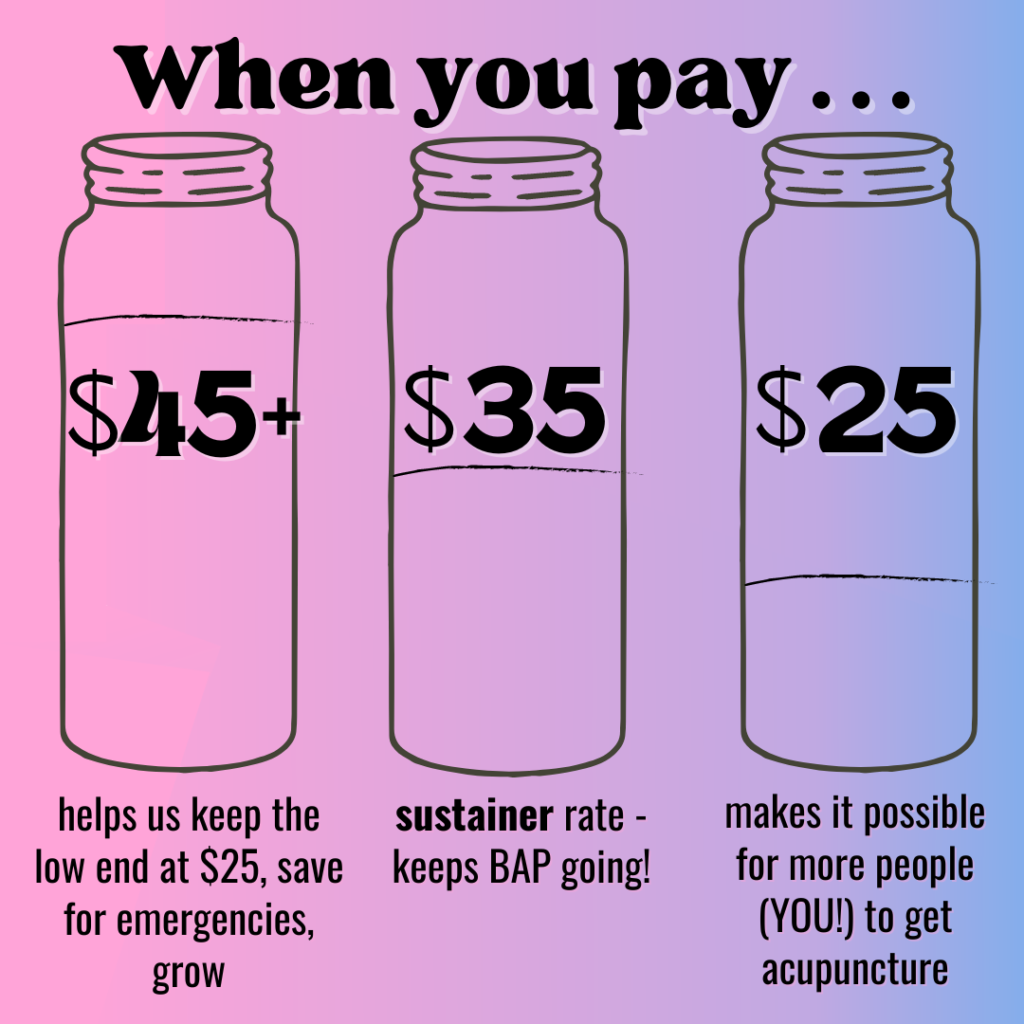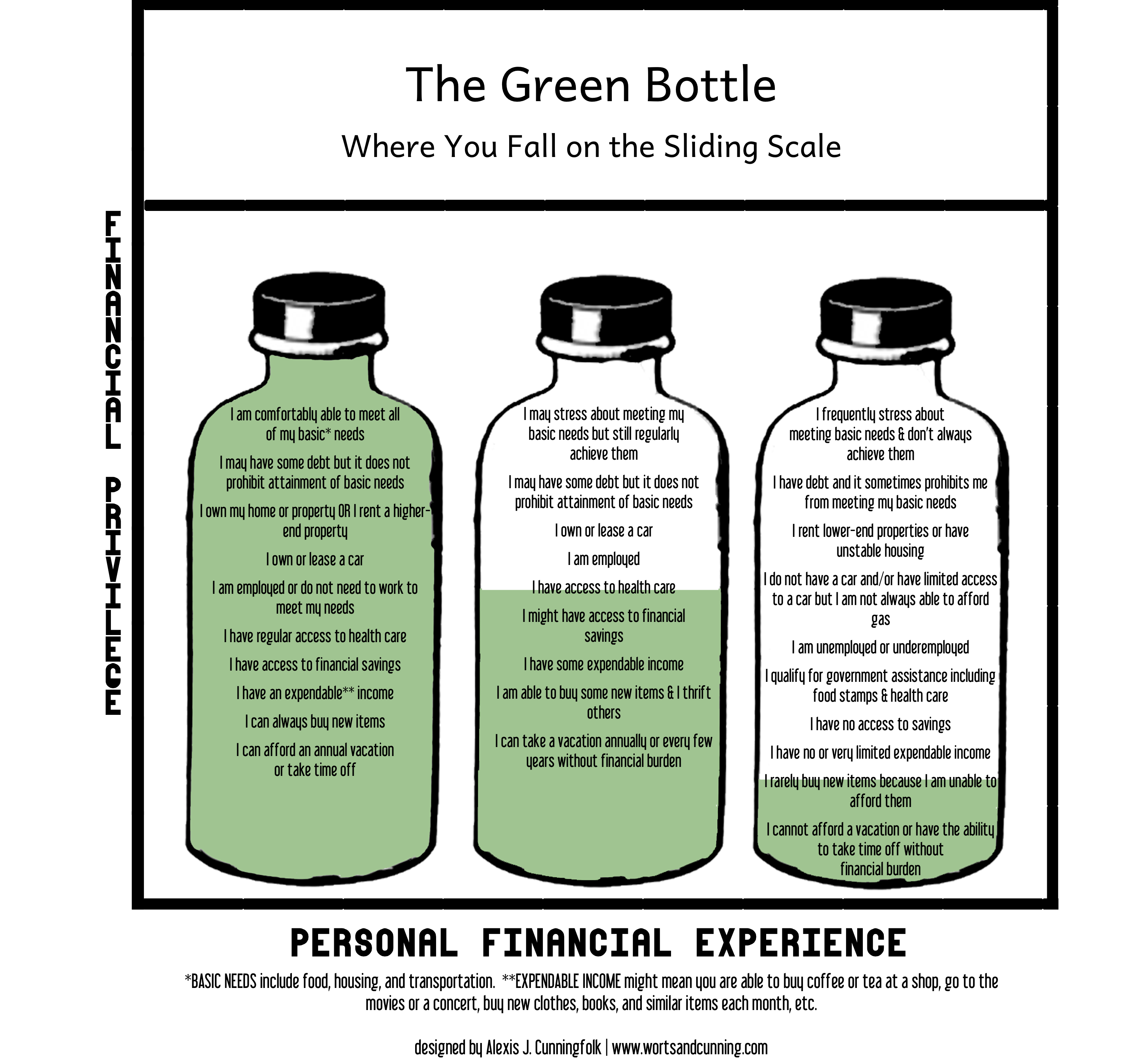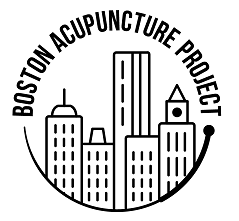New Sliding Scale Guidelines
Our sliding scale has not changed. Boston Acupuncture Project builds community by providing widely accessible and affordable acupuncture. Boston Acupuncture Project is here for you – and thanks to you. But what does the sliding scale really mean?
We need to average $35 per visit.
We want to keep our sliding scale at $25-$55 for as long as possible. In order to continue to stay open and provide treatments, our clinic needs to average $35 per visit. (This assumes we’re averaging 40 visits per week.) This is a literal average – every dollar counts! But to keep it simple, let’s break it into 3 tiers:

Paying $45 or more helps us keep the low end of the sliding scale at $25, save for emergencies, and potentially even grow to have more open hours, more programs, and more staff.
Paying $35 helps sustain Boston Acupuncture Project financially. Thank you! This is the average payment we need to keep things running.
If you are only able to pay $25, thank you so much – please keep paying $25 per visit.
If you need to pay $25, we want you to pay $25.
No matter how much you pay, we want you to be able to get as much acupuncture as you need to see a real difference in your health concerns. Not only does your life improve, but then you can tell other people about how acupuncture helped you! And that helps us reach more new patients, and fulfill our mission.
So, if paying more than $25 would prevent you from getting as much acupuncture as you need, we do not want you to pay more than $25. We want you to get enough acupuncture. There are also plenty of ways you can help BAP keep our doors open that are not paying more on the sliding scale, if you’re interested!
If $25 puts acupuncture out of reach for you
If you are not able to pay $25 per visit, please talk to your acupuncturist! Generous community members who love getting acupuncture at BAP donate Pay It Forward treatments for neighbors unable to pay $25. (If you would like to donate a Pay It Forward treatment, please click here to visit our donation page.)
We want you to know that every dollar counts.
If you are able, paying above $25 makes a real difference for us.
We are counting on you to ask yourself the question. We can’t stay open if we can’t meet our financial obligations.
How do I know how much I can pay?
This is very personal. Below is one framework for thinking about where you might fall on our sliding scale. Thanks for being thoughtful!

